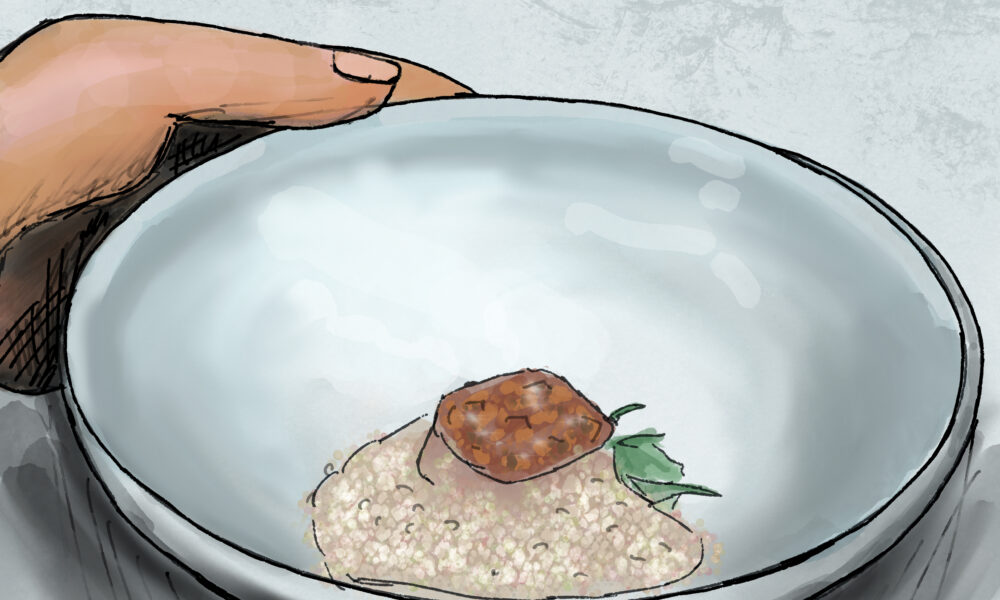I worked as a server in high school, and I can attest to the chaos that takes place within a restaurant kitchen. Notorious melting pots of large personalities, kitchens are often home to screaming matches and shattered plates. This conflict remains hidden from customers, tucked away behind the facade of crisp napkins and classy service.
However, we don’t always crave this polished front. Sometimes, we prefer to experience reality, no matter how harsh, rather than accept the illusion of perfection. Consider the popularity of celebrity chefs, from Anthony Bourdain to Guy Fieri, Julia Child to Gordon Ramsay. We want the drama, the yelling. Let us smell the cigarette smoke, feel the hot oil splash onto our hands. We want a peek behind the curtain.
Hulu’s smash hit The Bear has been lauded as a painfully accurate depiction of restaurant culture. It tells the story of Carmen “Carmy” Berzatto (Jeremy Allen White), a world-class chef who returns to Chicago to take over his brother’s restaurant after his passing. In the first season, Carmy struggles to find his place among a mismatched cast of employees, but gradually gains their respect when he starts to appreciate each chef’s individuality rather than expecting them to conform. 2023 brought with it the show’s second season, in which Carmy and Sydney (Ayo Edibiri) transform the chaotic Italian sandwich shop into the show’s eponymous fine-dining restaurant. Season three further develops the tensions of trying to succeed in the restaurant business.
The latest season, which premiered on June 25, raises the stakes: The restaurant has two months to start bringing in a profit and make it out of the red, or else The Bear will be forced to close its doors—forever.
Circles are a key motif in this season. Scallops. Kitchen timers. Plates, bowls. Cycles—whether they be of abuse or forgiveness, progress or hurt. Carmy struggles with repetition as his daily life begins to feel cyclical. In an early scene, he wakes to the muted dialogue of Groundhog Day playing on the television: “What would you do, if you were stuck in one place?” Like the film’s protagonist, Carmy is trapped—he’s entangled in a web of anger and grief, stuck between the pain he has endured and the harm he continues to inflict on those around him. As the episodes progress, however, it becomes clear that Carmy isn’t content with tracing the same circles. He learns to apologize, to atone, to take a deep breath rather than lashing out. It’s satisfying to witness; after hurting everyone around him, Carmy is well overdue for some good old-fashioned grovelling.
Jeremy Allen White’s performance as Carmy is multifaceted and moving. However, the true standout actor of this season is Ayo Edibiri (also known for her roles in Gen Z cult classics Bottoms and Theatre Camp). Witnessing Edibiri’s rise to fame feels like watching a childhood friend become a celebrity; when she acts, she evokes an immediate sense of closeness, of personal connection. Every time she comes on screen, I feel the need to whisper “I know her” to whoever is beside me. As Sydney, Edibiri is unfailingly authentic, whether stumbling through conversations with near strangers at a wedding or trying to bond with her cousin’s 11-year-old daughter. In one heart-wrenching scene, Edibiri depicts the stuttering sobs of a long-overdue breakdown with stunning accuracy, proving her place in today’s top class of young actors.
Upon the release of its third season, viewers were dismayed to see that The Bear appeared to be caught in the cycle of once-great television shows that decline in quality over time. It struggled to keep up with the frantic page established in previous seasons, choosing to highlight long montages and artistic shots over plot or character development. Thankfully, like Carmy, The Bear is breaking free from its cycle.
While the fourth season doesn’t return to the quick tempo of the first two seasons, it also strays from the aimless self-indulgence of the third, instead finding a sweet spot between the two extremes. Now, complex framing and artfully selected needle drops are paired with plot progression and emotional growth. Standout scenes are both beautiful and narratively compelling. Sydney cooks bathed in a rich violet in the third episode’s dream-like intro, inventing a key dish under the layered falsetto of St. Vincent’s “Slow Disco.” Lit in deep blue, Camy and Richie sit in Wes Anderson-esque symmetry as tensions simmer.
The Bear isn’t the same heart-pounding, stress-inducing show it once was. Over four seasons, it has transformed into something slower, taking its time and allowing its viewers to grow along with its characters. Ask me a year ago and I might have hesitated, but after watching the newest season, I believe The Bear is one of the best shows currently streaming. While I love eating popcorn on the couch while Carmy and Sydney bicker amid shots of mouth-watering meals, I don’t want to step foot in a restaurant kitchen again for a long time.









